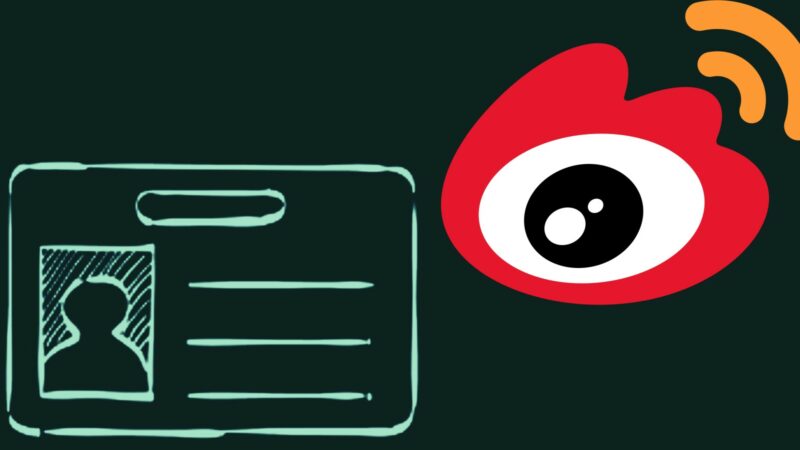The massive Chinese social media network Sina Weibo informed its platform’s most popular users last week that they must display their real identities, including names, gender, IP locations, as well as professional and educational background, on their account page starting at the end of October.
The policy will first apply to Weibo users with more than 1 million followers and later extend to those with half a million followers. It is believed that other social media platforms in China will also follow the move.
China implemented the online real-name registration system in 2012. Under the policy, personal data are stored on the platforms and are invisible to other users. Last year, Chinese social media platforms started displaying the IP locations of social media users to crack down on online rumors, including witness accounts of social incidents such as protests.
The latest change was confirmed by Weibo’s CEO Wang Gaofei, who briefly activated the personal information display on his profile page on October 20, 2023. Wang’s social credit status, employment, and professional and educational background were all listed on this profile page.
The new policy triggered a heated debate on Chinese social media. Unexpectedly, online patriots, who are usually fairly united, split into two camps over the new requirements.
Supporters argued that the policy could reduce online rumours and that influencers should bear more social responsibility and reveal their genuine identity to their readers. Among them is state-owned Global Times’ top commentator Hu Xijin, who commented on the new measure on Weibo on October 16:
A place to discuss privacy and freedom in the digital world.
Privacy has become a very important issue in modern society, with companies and governments constantly abusing their power, more and more people are waking up to the importance of digital privacy.
In this community everyone is welcome to post links and discuss topics related to privacy.
Some Rules
- Posting a link to a website containing tracking isn’t great, if contents of the website are behind a paywall maybe copy them into the post
- Don’t promote proprietary software
- Try to keep things on topic
- If you have a question, please try searching for previous discussions, maybe it has already been answered
- Reposts are fine, but should have at least a couple of weeks in between so that the post can reach a new audience
- Be nice :)
Related communities
much thanks to @gary_host_laptop for the logo design :)
- 0 users online
- 108 users / day
- 435 users / week
- 1.32K users / month
- 4.54K users / 6 months
- 1 subscriber
- 4.66K Posts
- 118K Comments
- Modlog







It sounds like pretty close to the same thing except for the “if you intend to monetize it” part which is a very big difference. But I don’t think Twitch or Youtube or the other platforms where significant money can be made have any support for anonymous payment methods, so that situation is not so different in Germany compared to the rest of the world (outside of China and places like that.)
deleted by creator